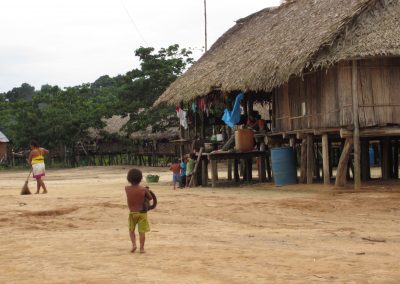Project Contingency plans for health protection of highly vulnerable Indigenous Peoples and in Initial Contact
Videos
Photos
More informations
The project Contingency plans for health protection of highly vulnerable Indigenous Peoples and in Initial Contact seeks to consolidate cooperation actions in bordering territories of the Amazon Basin, creating a favorable context to mitigate the COVID-19 impacts and the threats of emerging and endemic tropical diseases in the highly vulnerable Indigenous Peoples living in these areas, with special emphasis on the PIACI and the neighboring populations of these peoples. In the mid-term, this project will contribute to public policies formulation, promotion, consolidation, and institutionalization for the provision of culturally relevant and appropriate health services that effectively meet the demands of these populations, especially related to Covid-19, in coordination with the Ministries of Foreign Affairs, Ministries of Health along with IP public entities in the ACTO Member Countries that are participating in the project.
The activities envisaged in the project will be aligned and compatible with and complementary to national policies, processes, and technical developments, as well as to the institutional framework and operation of the countries health services and indigenous issues. The dialogue spaces with indigenous peoples will be framed under those defined by each of the national governments participating in the project.
The project has 3 components:
Component 1. Diagnoses about the health situation and how to face COVID-19 in Indigenous Peoples in Amazonian border regions.
Component 2. Strengthening the coordinated response capacity of health services
Component 3. Strengthening indigenous early warning mechanisms
Componet 1. Diagnoses about the health situation and how to face COVID-19 in Indigenous Peoples in Amazonian border regions.
The objective of this component is to improve knowledge about the health situation of IP in the intervention areas, as well as the response capacities to COVID-19 of health systems for vulnerable IPs, identifying the problems and solutions to short-term and structural problems.
The following activities will be financed:
(i) analysis of the IPs health and COVID-19 situation in the four selected border areas, with emphasis on collaborative processes, information promotion and analysis of disaggregated health data, including statistical information on the health situation of IPs, description of possible pandemic scenarios and strategies along with the identification of the relevant guidelines to include in the Contingency Plans.
(ii) dialogue among local and national health systems, and indigenous organizations.
Component 2. Strengthening the coordinated response capacity of health services
The objective of this component is to strengthen coordinated and culturally relevant response capacity of the different national and local health services against COVID-19 emergency and post-emergency for IP in border areas, in addition, to strengthen the existing health coordination mechanisms in border regions, considering and aligned with the experiences of the countries. The following activities will be financed.
(i) the participatory and culturally pertinent preparation of four (4) Contingency Plans for health and IP, with emphasis on PIACI, to be executed in coordination with relevant stakeholders and strategic and institutional partners that can make the project’s execution feasible.
(ii) workshops of the following modalities:
(a) intercultural dialogues to bring together traditional and Western medicine, to direct contingency plans guidelines and main measures;
(b) meetings of a Technical Group (virtual or on-site format[1]) for dialogue and directions related to Contingency Plans;
(c) bi-national and tri-national coordination meetings for the control of epidemics in border regions, particularly COVID-19, including the coordination of measures and actions of the Contingency Plans at different levels (national, regional, local) and actors (public, private, NGOs, etc.);
and (iii) the development of a cross-border coordination and cooperation mechanism of local, regional, and international entities and organizations through a virtual platform that includes the harmonization of health data of the countries for the implementation of Contingency Plans.
[1] Given the current pandemic context, the meetings will be held virtually until it is possible to hold meetings in person.
Component 3. Strengthening indigenous early warning mechanisms
The objective of this component is to strengthen indigenous early warning mechanisms and data presentation related to indigenous health in border areas.
The following activities will be financed:
(i) preparation of health early warnings protocols for indigenous border territories, with diagnoses, exchange of experiences, and improvement proposals for the establishment of information systems.
(ii) intercultural dialogues among indigenous representatives and leaders and the officials responsible for the health services information systems of bordering countries to strengthen surveillance and community reporting systems as well as for coordination among the community and health services. Training of local teams will be included to prepare them in health surveillance activities, with social and environmental responsibility.
(iii) purchase of radio communication equipment to enable early warning from the indigenous communities to the local health system; and
(iv) the creation of local health databases -compatible with other databases- provided with updated information and data related to IP, with emphasis on COVID-19, eventual spread of diseases in these areas and populations. These databases will be used for health monitoring in border areas with the participation and feedback of the community
Deliverables Component 1:
(i) Four (4) Border Territorial Reports about the health situation of highly vulnerable Indigenous Peoples and in initial contact situation were prepared, agreed upon, and validated by the Member Countries at the regional and local levels for information and data comparison.These reports will include data and information from public entities of the participating countries along with the national legislation and national and local institutions of said countries, and the normative frameworks and guidelines defined by the Indigenous Peoples Program of ACTO and PAHO/ WHO.
(ii) At least four (4) dialogue workshops (virtual or on-site) held with ACTO Member Countries, health workforce, experts, and indigenous organizations.
Deliverables of Component 2:
(i) Four (4) Health Contingency Plans in four border regions prepared, discussed, and validated by the Member Countries at the regional level.
(ii) intercultural dialogues carried out with indigenous peoples through their representatives and the health services.
(iii) workshops and meetings held and agreements reached to facilitate bi and tri-national coordinating efforts to confront COVID-19 and other diseases, along with the incorporation of actions and measures recommended in the Contingency Plans in the public management of local municipal authorities and health service networks in the border regions; and
(iv) a virtual platform established to reinforce actions to confront Covid-19.
Deliverables of Component 3:
(i) existing early warning indigenous community participation mechanisms in the border territories strengthened to solve public health problems.
(ii) forty (40) radio communication equipment acquired.
(iii) proposal for information management and local monitoring on health and indigenous peoples, and protocols developed for early warnings in health; and
(iv) dashboard with harmonized data on indigenous health at the local level.
The project will be implemented through a Coordination Committee made up of representatives of the ACTO Member Countries participating in the project (national focal points of the Ministries of Foreign Affairs and from the governing institutions in health and protection of indigenous peoples, particularly in isolation), the PS/ACTO and PAHO SAM.
Bolivia: Ministries of: Foreign Affairs and Health.
Brazil: Ministries of: Foreign Affairs and Health, National Indian Foundation (FUNAI).
Colombia: Ministries of: Foreign Affairs, Interior and Health.
Ecuador: Ministries of: Foreign Affairs, Justice, Human Rights, and Public Health.
Guyana: Ministries of: Foreign Affairs, Indigenous Peoples and Public Health.
Peru: Ministries of: Foreign Affairs, Culture and Health.
Suriname: Ministries of: Foreign Affairs, Regional Development and Public Health.
Pan American Health Organization, Subregional Program for South America (PAHO SAM).
Agenda of events
Week 1
- Sun 26
- Mon 27
- Tue 28
- Wed 29
- Thu 30
- Fri 31
- Sat 1
- Sun 2
- Mon 3
- Tue 4
- Wed 5
- Thu 6
- Fri 7
- Sat 8
- Sun 9
- Mon 10
- Tue 11
- Wed 12
- Thu 13
- Fri 14
- Sat 15
- Sun 16
- Mon 17
- Tue 18
- Wed 19
- Thu 20
- Fri 21
- Sat 22
- Sun 23
- Mon 24
- Tue 25
- Wed 26
- Thu 27
- Fri 28
- Sat 29
- Sun 30
- Mon 1
- Tue 2
- Wed 3
- Thu 4
- Fri 5
- Sat 6
-
No Events
-
No Events
-
No Events
-
No Events
-
No Events
-
No Events
Photos
Videos
Project News
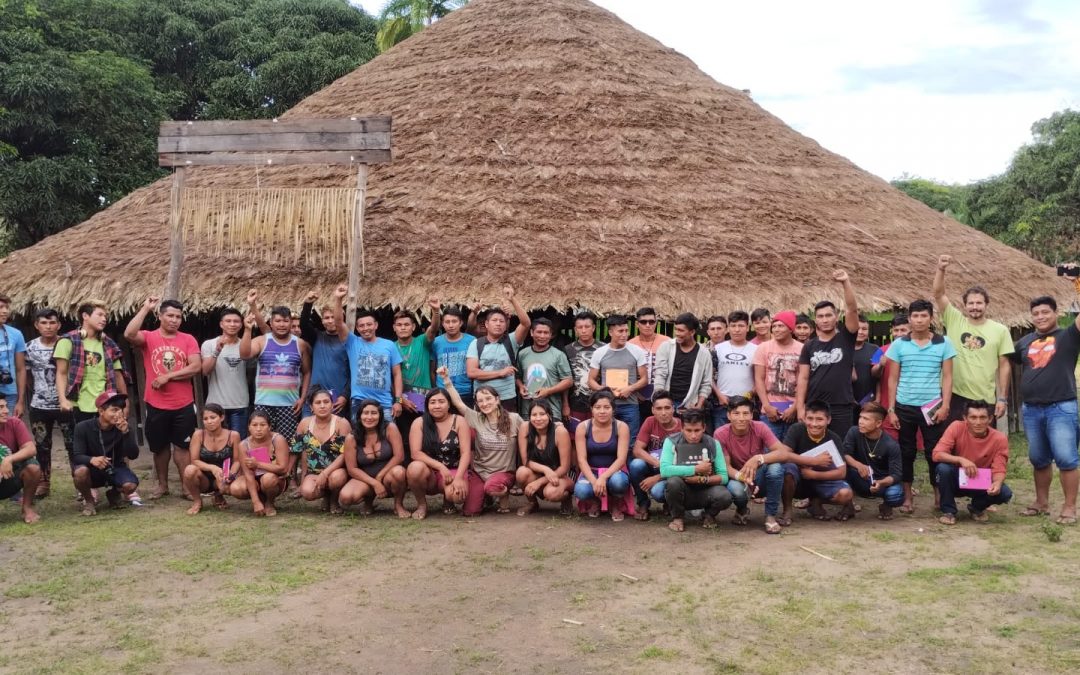
ACTO visits Tiriyo village in the Tumucumaque Indigenous Park
With logistic support and chartered flight by part of Iepé Institute, the coordinator Carlos Macedo and the technical consultant Fabrício...
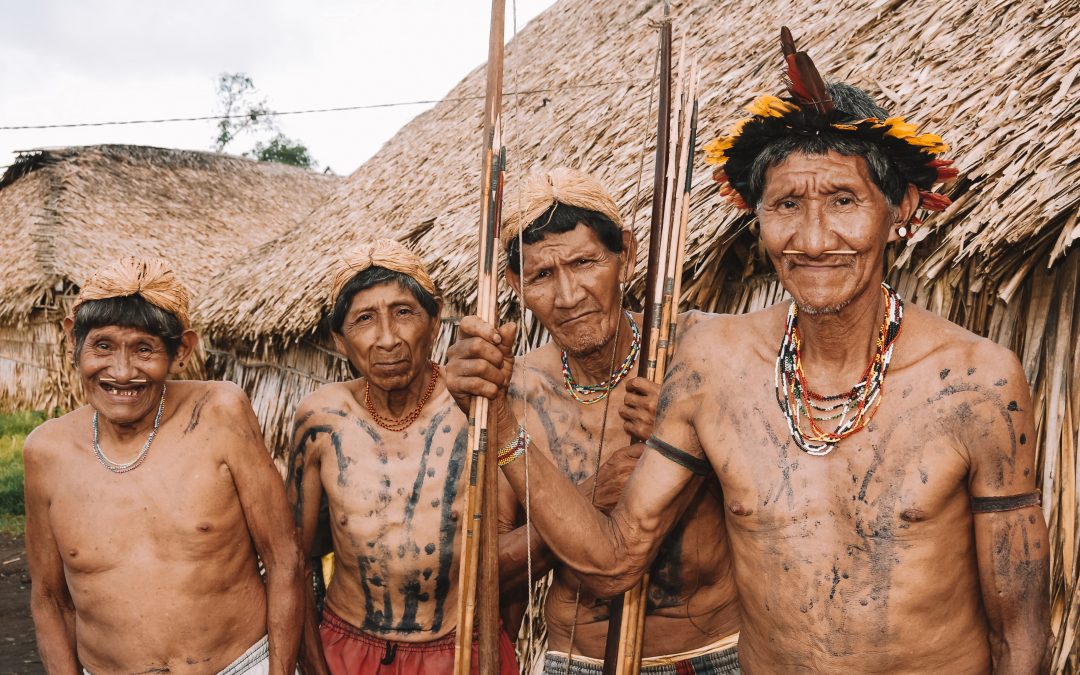
Brazil commemorates Indigenous Peoples’ Day
Today, April 19, the Indigenous Peoples' Day is commemorated in Brazil with the purpose of celebrating the cultural diversity of the...
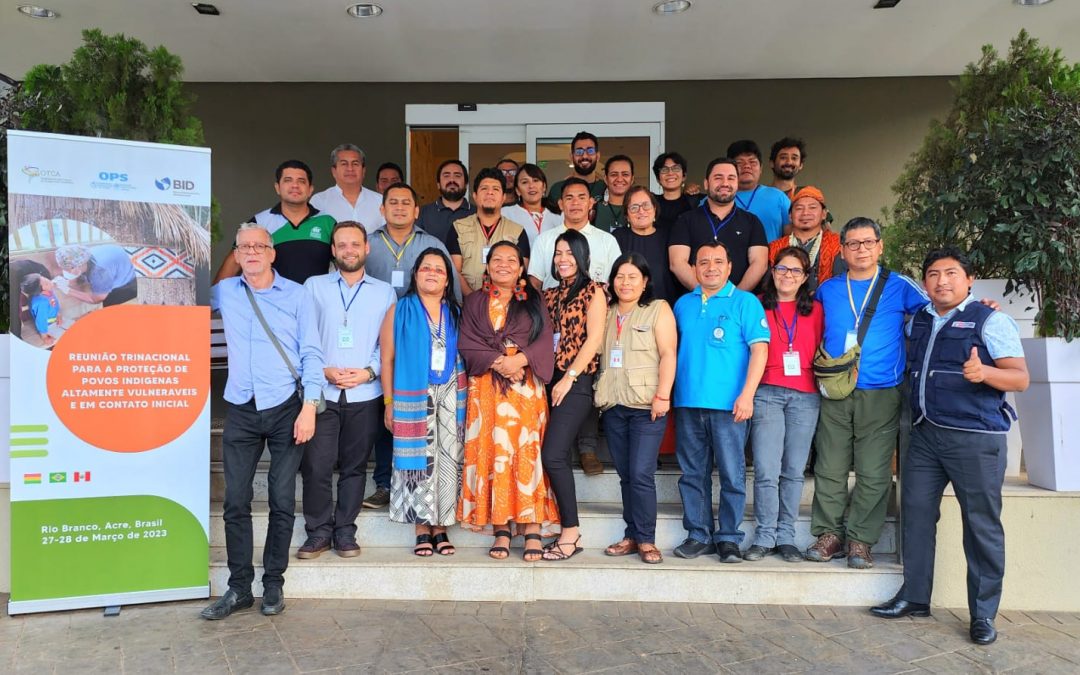
Recommendations and conclusions for the territorial protection and health care for indigenous communities were presented in the triple border region of Peru, Brazil, and Bolivia
The Amazon Cooperation Treaty Organization (ACTO) executed the Trinational Meeting Peru, Brazil, and Bolivia, where they defined actions...
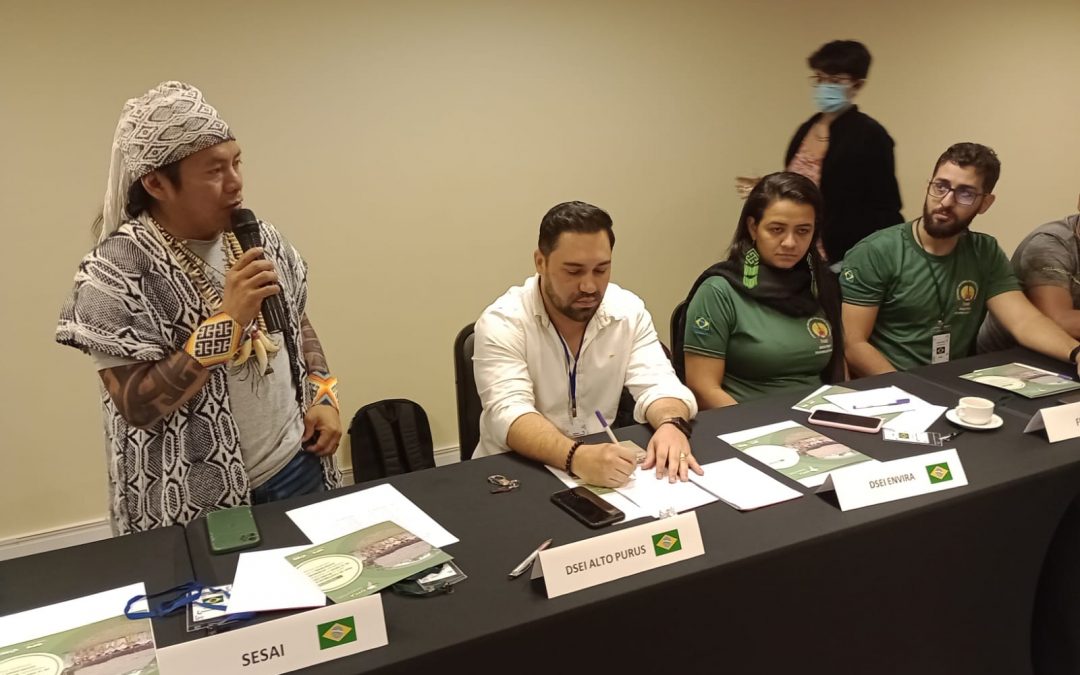
Healthcare actions for indigenous peoples are presented in the Tri-national meeting
In the area of the Project Contingency Plans for Health Protection of Highly Vulnerable Indigenous Peoples and in Initial Contact...
Publications
..
Technical documents
..
Other documents
..









